Genetics
-
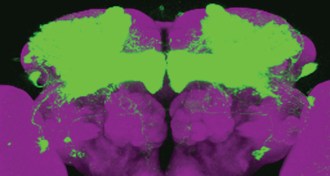 Genetics
GeneticsThis bacteria-fighting protein also induces sleep
A bacteria-fighting protein also lulls fruit flies to sleep, suggesting links between sleep and the immune system.
-
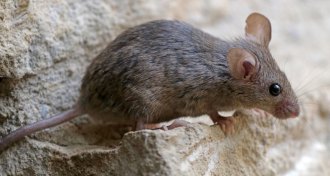 Genetics
GeneticsA CRISPR gene drive for mice is one step closer to reality
Researchers have made progress toward creating a gene drive for mice in the lab. Such genetic cut-and-paste machines have yet to be made for mammals.
-
 Animals
AnimalsA protein in mosquito eggshells could be the insects’ Achilles’ heel
A newly discovered protein found exclusively in mosquitoes may one day help control their numbers.
-
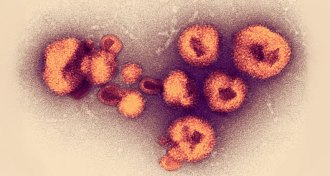 Health & Medicine
Health & MedicineDNA tests of Lassa virus mid-outbreak helped Nigeria target its response
New technology for analyzing genetic data quickly in the field guided how Nigeria dealt with an outbreak of Lassa fever in 2018.
-
 Agriculture
AgricultureA new way to genetically tweak photosynthesis boosts plant growth
A new chemical road map for a process called photorespiration in plant cells could reduce energy waste to increase plant productivity.
-
 Genetics
GeneticsNews of the first gene-edited babies ignited a firestorm
A researcher in China announced he created two babies using CRISPR. Many scientists questioned the study’s ethics and medical necessity.
-
 Genetics
GeneticsCrime solvers embraced genetic genealogy
DNA searches of a public genealogy database are closing cases and opening privacy concerns.
-
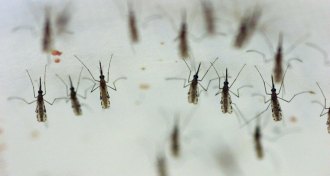 Animals
AnimalsHumans wiped out mosquitoes (in one small lab test)
An early lab test of exterminating a much-hated mosquito raises hopes, but is it really such a great idea?
By Susan Milius -
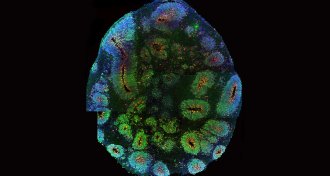 Neuroscience
NeuroscienceBig data reveals hints of how, when and where mental disorders start
The first wave of data from the PsychENCODE project holds new clues to how and when psychiatric diseases such as schizophrenia emerge.
-
 Animals
Animals50 years ago, armadillos hinted that DNA wasn’t destiny
Nine-banded armadillos have identical quadruplets. But the youngsters aren’t identical enough, and scientists 50 years ago could not figure out why.
-
 Plants
PlantsHybrid rice engineered with CRISPR can clone its seeds
New research has created self-cloning hybrid rice, raising hopes of higher food production.
By Susan Milius -
 Genetics
GeneticsA 5,000-year-old mass grave harbors the oldest plague bacteria ever found
DNA from an ancient strain of the plague-causing bacterium could help uncover the origins of the deadly disease.
By Bruce Bower